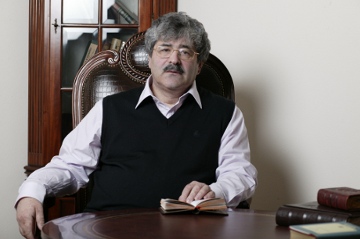PEOPLE WONDER, "How come that the United States, a great democratic state and its no less democratic allies in Europe turn a blind eye to massive crimes against civilians in Donbass?" This is not accidental and this attitude has a pre-history of its own.
In the wake of World War II, the United States challenged the obsolete system of colonial domination of Europeans in Africa, Asia and the Middle East to make the dollar the world's only ruler. The British Empire was the first to collapse followed by weaker "empires," protectorates, trust territories, and colonies.
Certain important ideological aspects of decolonization made the United States and the Soviet Union allies of sorts who eloquently described the numerous victims and untold suffering the colonialists and their henchmen had caused the peoples of colonies.
It looked as if the world had entered a new era of peaceful economic expansion and universal competition; the Soviet Union which proclaimed the principles of peaceful coexistence and economic competition of the two systems looked like a natural element of the new world order.
F.D. Roosevelt, very much like his predecessor Woodrow Wilson, cherished the idealistic hopes that the United States, a paragon of universal democratic values that gave it economic domination, having obtained carte blanche to create a new world order would rule this world harmoniously and, most important, without violence.
Realities proved to be not merely less idealistic...
After a very short respite after World War II, a string of local wars claimed hundreds of thousands or even millions of lives. An independent research structure The Centre for Research on Globalization (Quebec, Canada) published an article by C.J. Werleman, in which it accused the United States of a refusal to admit its responsibility for a huge number of lost human lives. The author is convinced that it is not as simple as "the end justifies the means" - it is a long history of unbridled censorship when civilian losses were deliberately understated or even passed over in silence.
"Do you want to know how many civilians did the US kill in both Vietnam and Cambodia? Well, it depends on whom you ask. If you ask the US government, 'official records,' you get to a number around 2 million. If, however, you ask NGOs that track civilian casualties, you get to a number closer to 4 million," writes the author and adds, "Of course, neither the above official and credible figures include the estimated 500,000 who have died slow and painful deaths over the course of the post-war decades from exposure to chemical weapons."
C.J. Werleman reminds the reader that when asked about the number of civilian casualties in Iraq between 2003 and 2010 President Bush cited the figure of 30 thousand. "Lancet, a highly regarded British medical journal, however, published an 'epidemiological study' in November 2004 that concluded more than 100,000 Iraqis had been killed in 'violent actions' since the invasion."
According to the latest figures cited by the Pentagon, "U.S.-led airstrikes against ISIS have killed only two civilians: both children - 'likely in Syria'" while a new report compiled by the non-profit group Airwars, which tracks coalition airstrikes in the Middle East, "documents up to 591 civilian deaths from more than 50 credible incidents - involving 5,600 airstrikes."
No wonder, the Western countries vetoed in the UN SC the draft resolution of the Russian Federation on the necessity for an independent investigation of the methods and nature of similar operations in Libya.
C.J. Werleman further wrote that "indifference to foreign 'savages' and suffering is even codified into the US public education system. Out of 58 textbooks that mentioned the atomic bomb, only 42 mentioned the civilian death toll of Hiroshima and only 18 mentioned the civilian death toll of Nagasaki; many of the textbooks gave a lower figure than official United Nations estimates."
These facts forced writer and historian Susan Southard spend ten years gathering material for her Nagasaki: Life after Nuclear War. The book is based on detailed interviews with survivors in the nuclear attack. She writes about American military censorship: "Censorship meant it was not until the 1950s that the Japanese public learned the full reality of the nuclear attacks." Results of studies of radiation sickness were suppressed that made correct treatment of the ill and dying impossible. The author of the review in The Economist has written that "those victims who had not succumbed to radiation sickness had gone for years without government support. Their horrific injuries and symptoms of radiation often did not qualify under national health insurance. Their disfigurements led to long periods of bullying at school and social exclusion."
Susan Southard has opened a hitherto little known page about the Nagasaki tragedy: "Among the least-known victims of Nagasaki were 10,000 Koreans, who took 11 years to win the right to the same healthcare benefits as Japanese survivors."
C.J. Werleman invited his readers: "Go ahead. Conduct your own poll the next time you're chatting with Americans. Ask how many civilians were killed in Vietnam, Hiroshima, Nagasaki, Iraq, Syria, Panama, Cuba, Nicaragua, Korea, etc. I bet they either don't know or care."
No wonder, this has made American politicians and a large part of the American population indifferent to the civilian victims in the far-away Donbass. Indeed, the democratic values "common to all mankind" should be defended harmoniously and without bloodshed; in the ideal world, they exclude bloodshed and suffering.
 17:22 22.09.2015 •
17:22 22.09.2015 •
